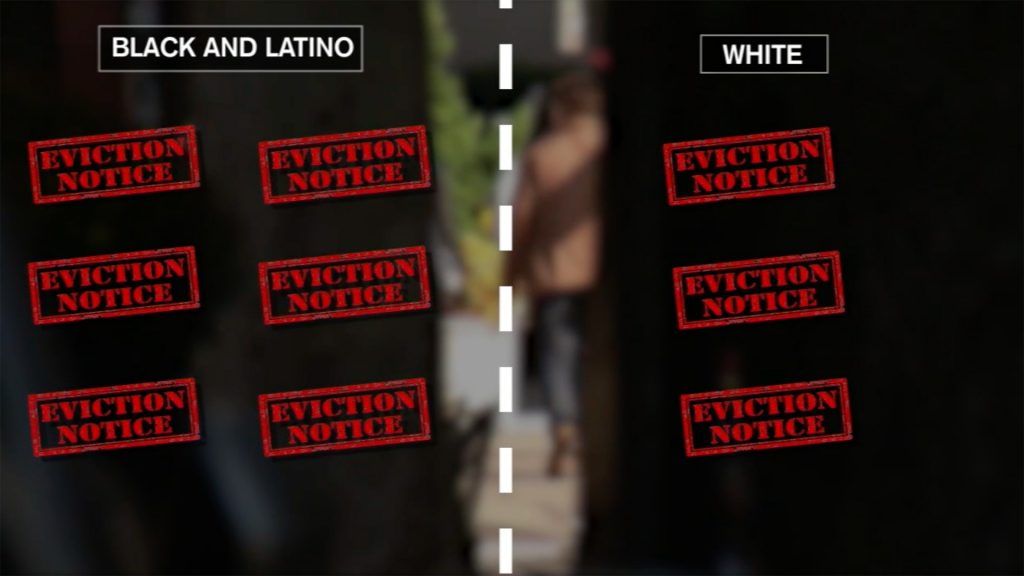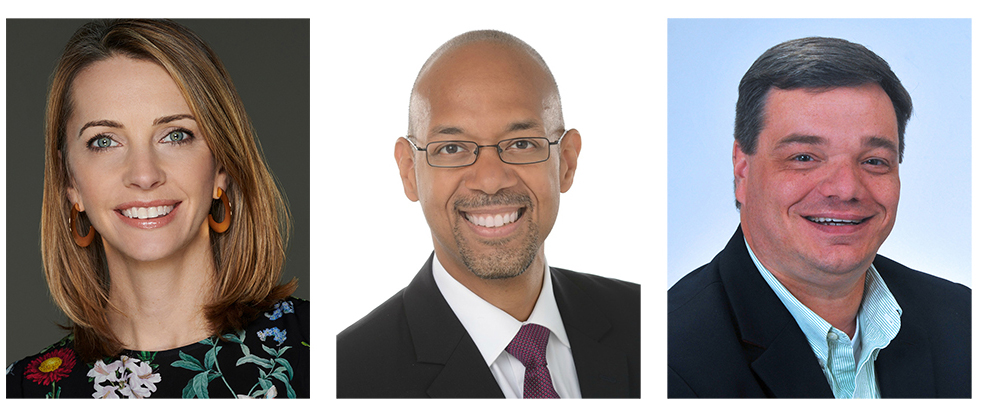
The eight ABC Owned Television Stations are a small group that thinks big, and their new project, which was recently awarded a grant from the Google News Initiative Innovation Challenge, is just the latest example. Our America: Hidden Stories is a series of broadcast and digital reports and specials that seeks to address systemic racism with a distinctive combination of historical perspective, inspiring stories from today, and hard numbers. It’s an approach that stretches the traditional role of the newsroom in order to promote social change.
“I don’t think it’s enough for local journalists to just tell the stories anymore. It’s critical that we inspire and empower our communities to take action,” says Anna Robertson, vice president of content and partner innovation at the group. “Over the past year, we saw real hunger for people to understand the history of these cities and understand things that they may not have been taught in school. And so we decided to set out and tell the hidden stories, the stories that don’t always get told in the textbooks.”
“One of the things that we’re going to explore are the root causes and lasting impact of systemic racism,” says Jason Potts, who’s managing a cross-functional working group from around the division that helped come up with the idea to pitch to Google. “I just want to say that being a part of this project has been very meaningful for me and the team. What we’re looking to do is to create content that’s actionable and meaningful.”
That’s an ambitious goal, and to tackle it, the ABC stations are leaning hard on their group-wide data unit, some of whose nine members are embedded in the newsrooms themselves. We reported last spring on the unit’s work during the pandemic, which continues today. Every ABC market now has a customized “vaccine tracker” that helps users find where shots are available. Each city gets its own localized data and interactive online tool; the group is testing several formats in the different markets to see which are most effective.
Watch a team from Houston’s KTRK explain how to use the station’s vaccine tracker
The data team is also finishing work on last year’s Google Innovation Challenge project — the ABC station group has won two years in a row — which harvests publicly available municipal data from all over California to create a new resource for journalists, especially in underserved communities.
“The data journalism work over the past year has really just supercharged our newsrooms,” Robertson says. “Each of the news directors is just hungry for more. They want data to be a part of every story. So it’s really a two-way street, where we’re pitching them stories, and then they’re coming to us and saying, ‘We’re covering this issue today. Is there data to support it?’ They’re hungry for it because this is what is differentiating us from our competition and enabling us to serve our communities in really powerful new ways.'”

Example: One of the most distinctive features of the new Hidden Stories project is a database the team is calling an “Equity Report” — a constantly evolving statistical picture of racism in areas like policing, housing, economic opportunity, and access to health care. “We felt that by creating a living breathing ‘Equity Report’ to track progress against these different areas of importance, we could do what we do best and get that information to our reporters to tell stories to hold local officials accountable,” Robertson says.
Watch Carlos Granda’s KABC report on disparate vaccination rates in LA County
While the Equity Report won’t be available until sometime this spring, the underlying work is well underway — and already showing results on the air. In San Francisco, KGO investigative reporter Stephanie Sierra, working with data journalists Lindsey Feingold and Grace Manthey, has done a series of reports on so-called “pharmacy deserts” — neighborhoods with few or no pharmacies to serve them. KABC’s Carlos Granda teamed up with Manthey to expose huge disparities in COVID-19 vaccination rates among different demographic groups in the Los Angeles area. WABC investigative reporter Dan Krauth and data journalist Frank Esposito documented a coming wave of evictions in the very same New York City neighborhoods hit hardest by the pandemic.
Watch Dan Krauth’s data-driven WABC report on eviction disparities in New York
“One of the things that we’re pursuing here is the ability to gather some of that hard data and make that a foundation or a piece of this broader storytelling, so that you can set the agenda in these communities,” says John Kelly, who leads the ABC data squad. “The data journalism gives us an opportunity to change from conversations where people are basing their policy decisions or the things they want to talk about on their perceptions or their opinions or what they’ve heard from somebody else, and instead, move the conversation into something that we think the viewers are hungry for, which is hard, irrefutable data. In an era of an avalanche of misinformation, [these are] numbers that people can get their arms around and understand, which led us to this Equity Report concept in all of our communities.”

Anna Robertson, Jason Potts, and John Kelly
Our America: Hidden Stories comes in the wake of a series of ABC reports and specials called Our America: Living While Black, which we wrote about last fall. “We got a terrific and tremendous response to that, and a hunger for more storytelling about people like that in our communities who hadn’t been profiled by the mainstream media, and who are really interesting and really dynamic and making a huge contribution to our society,” Robertson says.
A collaboration with the North Carolina-based Racial Equity Institute, which provided training to ABC general managers and other executives, also helped inspire and shape the new project. “What they do is combine data and storytelling,” Robertson says. “Data is great, but we have to explain the why behind the data. And if we want to make progress in our communities, we can’t do so without understanding the history that got us to where we are. I think that’s the key piece: bringing the current data together with the stories of our past and the people who are trying to change it, going forward into the future.”
“I would like for this project to change minds. I would like for this project to make a real impact in our communities with regard to the issue of racism,” says Jason Potts. “We think that this has the potential to dramatically change the thoughts and minds of our community members.”